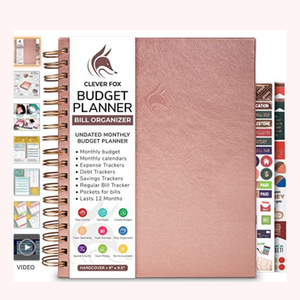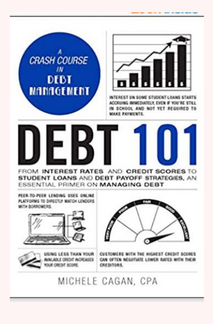10 Important Financial Mistakes to Avoid
 Some Financial Mistakes to Avoid, include steering clear of overspending, neglecting savings, and delaying investment opportunities that could secure their future.
Some Financial Mistakes to Avoid, include steering clear of overspending, neglecting savings, and delaying investment opportunities that could secure their future.
When it comes to managing money, women are often faced with unique challenges. Whether it’s the gender pay gap, the societal expectations around money, or simply a lack of financial literacy, women have to work harder to achieve financial independence and wealth.
But the good news is that more women than ever are taking control of their finances and making smarter financial decisions.
However, even the most financially-savvy women can make mistakes along their journey. These mistakes can cost you time, money, and opportunities to build real wealth. The key to financial success is to learn from others’ mistakes, avoid common pitfalls, and take proactive steps toward financial freedom. In this post, we’ll discuss the 10 most common financial mistakes women make and how you can avoid them to become even smarter with your money.
Table of Contents
Money Freedom Tools
Below are some to the financial freedom tools that will help in developing your financial freedom either by properly creating a budget that works for your personal style. It also includes the different strategies that will ensure your retirements goals are achievable.
 Financial Budget Planner
Financial Budget Planner
It has many financial tips, trackers and and strategies to implement along the way.
- Home Finance and Bill Payment Organizer
- Budgeting Book with Income and Expense Tracker
- Daily, weekly, monthly and yearly budgets
- Has spacious pocket for all your bills, set annual financial goals, build a viable strategy,
.
 Budget Planner
Budget Planner
This is a comprehensive budget planner that is aimed in saving money and repaying debt fast
- Monthly bill organizer with pockets
- Expense tracker and finance journaling
- Financial calendar tracks money & savings,
- Debt tracking, Payment, Balances
- Bill tracking, and 2 pages for annual
.
 Personal Finance Book
Personal Finance Book
This book showcases how to completely transform your finances by showing step by step strategies
- Simplified beginners guide to eliminate financial stress
- Comes with digital simplified templates to use
- Saving strategies that can quickly save money
- Debt paying strategies that will erase debt faster
- Easy Strategies to implement and track your progress
.
 Payoff Debt Fast
Payoff Debt Fast
This book showcases the best way to quickly erase different types of debts.
- How to correctly payoff debt and correctly borrow money
- Includes how to manage different types of interest rates
- Credit Scores, Student Loans, Debt Payoff Strategies
- Cheaply manage debt, Essential Primer on Managing Debt
- Use credit wisely with this easy-to-understand, comprehensive guide
.
 Retirement Planning Guidebook
Retirement Planning Guidebook
This guidebook certainly helps in laying a strong foundation.
- Assess where you wish to live in retirement
- Manage your long-term care risk between self-funding
- Investment and insurance tools that fit your personal style
- Smart decisions for when to start Social Security benefits
- Determine if you are financially prepared for retirement by quantifying your financial goals
.
1. Not Having a Budget in Place
One of the most common financial mistakes is not having a clear budget. Without a budget, it’s easy to lose track of where your money is going, resulting in overspending and under-saving. A budget is essential for understanding your income and expenses, ensuring that you live within your means while also saving for future goals.
Creating a budget allows you to allocate money for necessities like rent, utilities, and groceries, as well as for saving and investing. It gives you a clear picture of your financial situation and enables you to make informed decisions about where to cut back and where to splurge.
Tip: Use budgeting apps like YNAB (You Need A Budget) to track your spending. These tools can help you stay on top of your finances and provide insights into where you can make adjustments.
2. Avoiding Investments Out of Fear
Financial Mistakes to Avoid is definitely avoiding investing because they’re scared of losing money or feel that the stock market is too complicated to navigate. However, not investing can be just as risky as making poor investment decisions. Inflation over time erodes the value of your savings, so it’s essential to put your money to work by investing in assets like stocks, bonds, or real estate.
While investing does carry some risk, it’s important to remember that the longer you leave your money in traditional savings accounts or under your mattress, the less it will grow. Women tend to be more conservative with their money, but it’s crucial to take calculated risks and build wealth for the future.
Tip: Start small by investing in low-cost index funds or exchange-traded funds (ETFs), which offer broad market exposure and lower risk. As you gain more confidence, you can diversify your portfolio and experiment with other investment options.
3. Ignoring the Power of Compound Interest
Compound interest is often referred to as the “eighth wonder of the world” because of its ability to grow your wealth exponentially over time. Unfortunately, many women fail to take advantage of compound interest because they start saving too late or don’t save enough.
The earlier you start saving and investing, the more you’ll benefit from compound interest. Even small amounts of money can grow significantly over time when they’re allowed to compound. Starting early allows you to build wealth passively, so you don’t have to rely solely on your income or efforts to grow your savings.
Tip: Open a retirement account, such as an IRA or 401(k), and start contributing as early as possible. Even if it’s just a small amount, your future self will thank you for it.
4. Not Having an Emergency Fund
Life is unpredictable, and unexpected expenses can arise at any time. Whether it’s a medical emergency, job loss, or car repairs, having an emergency fund gives you the peace of mind that you’re financially prepared for life’s curveballs.
Many women skip this crucial step, thinking that they can rely on credit cards or loans to cover emergencies. However, this can lead to high levels of debt and financial stress. Having a dedicated emergency fund (usually three to six months’ worth of living expenses) helps you navigate tough times without derailing your financial stability.
Tip: Set up a separate savings account for your emergency fund and automate monthly deposits. Treat this fund as a non-negotiable part of your financial plan.
5. Relying Too Heavily on One Source of Income
Another mistake many women make is relying too heavily on a single source of income, typically from their job. While having a steady paycheck is important, it’s crucial to diversify your income streams to build financial resilience. Relying on just one source leaves you vulnerable if you lose your job or experience a pay cut.
By diversifying your income, whether through side hustles, freelance work, or investments, you can create a more secure financial future. Multiple income streams can also allow you to save and invest more aggressively, helping you reach your financial goals faster.
Tip: Explore side hustles or passion projects that can bring in extra cash. Whether it’s starting an online business, offering consulting services, or freelancing, having multiple income sources can provide financial freedom and flexibility.
6. Not Negotiating Your Salary
Women are often hesitant to negotiate their salaries, whether because of fear of rejection or a lack of confidence. However, not negotiating your salary can leave money on the table over the course of your career. The gender pay gap is real, but women can take steps to close that gap by advocating for themselves in the workplace.
When you don’t negotiate, you may miss out on higher earnings, which can affect your ability to save and invest. Over time, this can have a significant impact on your overall wealth.
Tip: Do your research before salary negotiations. Know the market rate for your role and be prepared to confidently present your value to the company.
7. Not Prioritizing Retirement Savings
Focusing on short-term financial goals like paying off debt or saving for a vacation but neglect their long-term goal of retirement. Retirement may seem far off, but the sooner you start saving, the easier it will be to build a substantial nest egg for the future.
Women generally live longer than men, which means they need more money saved for retirement to maintain their quality of life in their later years. By not prioritizing retirement savings, you risk having to rely on others or work longer than you’d like.
Tip: Automate your retirement savings by contributing to your employer’s retirement plan or setting up an IRA. The earlier you start, the more time your money has to grow.
8. Letting Debt Pile Up
While some debt, like a mortgage or student loans, can be a healthy part of your financial journey, accumulating high-interest debt like credit card balances can hold you back from building wealth. Many women fall into the trap of carrying debt month after month, paying only the minimum and letting interest pile up.
This creates a cycle of debt that can be hard to break. The longer you carry debt, the more it costs you over time, preventing you from saving and investing in your future.
Tip: Pay off high-interest debt as quickly as possible, focusing on one debt at a time using the snowball or avalanche method. Once you’re debt-free, use your newfound funds to save and invest.
9. Failing to Protect Your Wealth with Insurance
It’s easy to overlook the importance of insurance, but having the right coverage is crucial to protecting the wealth you’re building. Insurance helps safeguard against unexpected events, such as medical emergencies, accidents, or property damage, that could otherwise derail your financial progress.
Without the proper insurance, you risk losing your assets and investments, which can set back your financial goals significantly.
Tip: Ensure that you have adequate health, life, and disability insurance. Consider working with a financial advisor to help you choose the best coverage for your needs.
10. Not Seeking Professional Financial Advice
Navigating finances on your own without seeking professional help. While it’s great to be financially independent, it’s also important to recognize when you need expert advice. A financial advisor can help you with tax planning, retirement strategies, investment options, and more.
Failing to seek professional advice can result in missed opportunities and costly mistakes.
Tip: Schedule a consultation with a certified financial planner to ensure that your financial plan is on track. A professional can help you optimize your investments, set realistic goals, and make the most of your money.
Conclusion
Becoming financially independent and building wealth requires more than just earning money—it requires smart decisions and a long-term strategy. Avoiding these common financial mistakes will help you stay on the right track toward financial freedom. Whether it’s budgeting, investing, or seeking professional advice, the key to success lies in taking proactive steps today.
By learning from these mistakes and applying the lessons to your financial journey, you’ll be well on your way to becoming a smart woman with smarter money. The road to financial freedom may not always be easy, but with the right mindset and strategies, you can make it a reality.
- 100 Valentine Lovers Questions - February 24, 2025
- 2025 New Year Growth Quotes - February 24, 2025
- 2025 Inspiring Self Love Quotes - February 24, 2025







